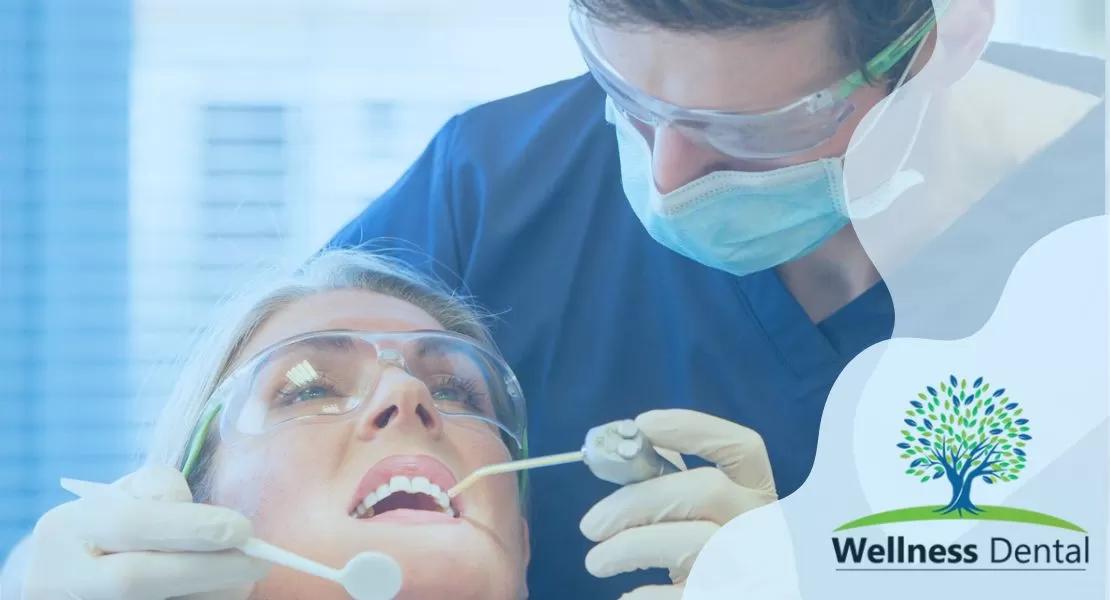Getting a tooth extraction is never a pleasant experience. Whether it's wisdom teeth or another molar, the healing process can be a bit challenging. But what about smokers? Are there additional risks they should be aware of when it comes to tooth extractions?
Why Are Tooth Extractions Different For Smokers?
Smoking can complicate the healing process after a tooth extraction. When a tooth is pulled, the body starts its natural healing process. A blood clot forms in the empty socket, followed by the generation of fibroblasts, which play a crucial role in wound healing. The process of bone creation then begins. However, smoking can disrupt this healing process and introduce various risk factors.
When you smoke, your blood pressure rises, which can lead to bleeding and dizziness. Moreover, tobacco products can directly damage tissue cells, hindering wound healing. The inhalation of smoke allows tobacco and nicotine to quickly reach the surgical site, causing throbbing pain and intense discomfort. Smokers often report a more painful healing process because smoking decreases oxygen levels and inhibits important nutrients from reaching the healing tissues.
Smoking After Tooth Extraction Can Cause Dry Sockets
In addition to pain, dizziness, and slower healing, smoking after a tooth extraction can lead to dry sockets. A dry socket, also known as alveolar osteitis, occurs when the blood clot that forms in the socket is dislodged by the suction created while inhaling cigarettes. This exposes the nerves and makes them susceptible to infection. Dry sockets can cause severe pain that lasts up to a week.
How Long Should You Avoid Smoking After a Tooth Extraction?
If you cannot quit smoking before a tooth extraction, it is recommended to avoid smoking for at least one day following the procedure. Ideally, it would be best to quit smoking for a minimum of 72 hours after an emergency tooth extraction. This allows your body's natural healing process to take effect and reduces the risk of developing a dry socket. Maintaining good oral hygiene is also crucial to keep the extraction area clean and prevent food or debris from entering the socket.
Consult Your Dentist Before Tooth Extraction
Clear communication with your dentist or oral surgeon is essential. Be honest about your smoking history and inform them of your intentions to smoke after the procedure. This will help create an appropriate treatment plan and ensure better results. If you experience any pain or symptoms of a dry socket, contact your dentist immediately.
Get the Dental Treatment You Deserve
At our state-of-the-art facility, we believe that everyone deserves a bright, healthy, and beautiful smile. We offer cosmetic dental options tailored to each patient's unique needs and preferences. Our highly trained Simi Valley dentists will guide you through the treatment process to deliver exceptional results. Don't wait any longer to achieve the smile of your dreams – schedule a consultation with us today!
Frequently Asked Questions
- Can smoking affect the healing process after a tooth extraction?
- What is a dry socket?
- How long should I wait to smoke after a tooth extraction?
- What should I do if I experience pain or symptoms of a dry socket?
Yes, smoking can disrupt the healing process by increasing blood pressure, hindering wound healing, and causing pain.
A dry socket, or alveolar osteitis, occurs when the blood clot in the socket is dislodged, leaving the nerves exposed and vulnerable to infection.
It is recommended to avoid smoking for at least one day following the procedure. Ideally, quitting smoking for 72 hours is best.
Contact your dentist immediately for proper evaluation and treatment.
Smoking after a tooth extraction can have detrimental effects on the healing process. It can lead to complications such as dry sockets, intense pain, and slower healing. To ensure a smooth recovery, it is best to quit smoking for at least 72 hours following the procedure. Open communication with your dentist is crucial for developing an appropriate treatment plan. Remember, your oral health is important, and taking the necessary steps to promote healing will lead to better long-term outcomes.
If you want to know other articles similar to Smoking after tooth extraction: risks, healing process, and tips you can visit the Dentistry category.

